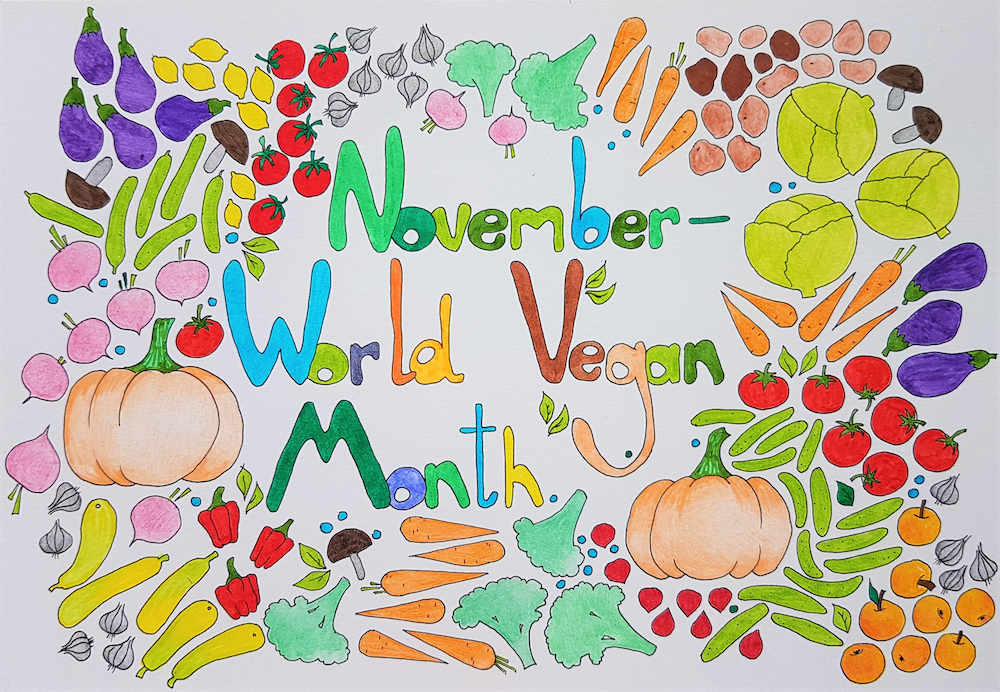World Vegan Month is celebrated around the world as a time to recognize how far the vegan movement has come, to highlight how accessible and beneficial a vegan lifestyle is and to encourage the vegan-curious to adopt veganism by sharing advice, recipes and ideas.
2019 marks 75 years since the foundation of The Vegan Society - what a long way we've come since then!
People around the world choose to mark World Vegan Month in an array of different ways. You could host a vegan lunch at work or a vegan dinner party with friends; commit to taking part in vegan outreach in your local community; share your favourite vegan recipes on social media or even challenge your friends, family or work colleagues to go vegan for 30 days by taking the Vegan Pledge or downloading the app, the VeGuide.
However, you choose to mark World Vegan Month, be sure to share it far and wide using the #WorldVeganMonth and #WorldVeganDay hashtags on social media and tag on Facebook and Twitter using the handle @TheVeganSociety!

Calling all vegans! World Vegan Month is an annual designation observed in November. This month, plant-based eaters from across the globe come together to celebrate their 100% cruelty-free lifestyle. So, what exactly defines a vegan? Veganism is a way of life that excludes all forms of cruelty to animals for food, products, or any other purpose. There are many different ways to embrace the vegan lifestyle, but the underlying “rule” is to eat a plant-based diet. Vegans also so a step further than just avoiding meat; they also avoid fish, dairy, eggs, and honey, as well as products like leather or fur. You might be thinking, “So, what can they eat?” Surprisingly, there are thousands of vegan recipes out there that are delicious, and exceptionally nutritious.
Another commonly asked question is, “Why would somebody choose to go vegan?” To which there are a handful of answers, according to vegan.org.
- To save the animals. Vegans do not appreciate the treatment of animals on farms, nor the killing of the animals as soon as their production rates decrease.
- For the environment. Animal agriculture takes a toll on the earth by contaminating aquatic ecosystems, soil, and more.
- For their own health. Research shows that consuming animal fats and proteins is linked to heart disease, colon and lung cancer, diabetes, obesity, and other debilitating conditions.






































